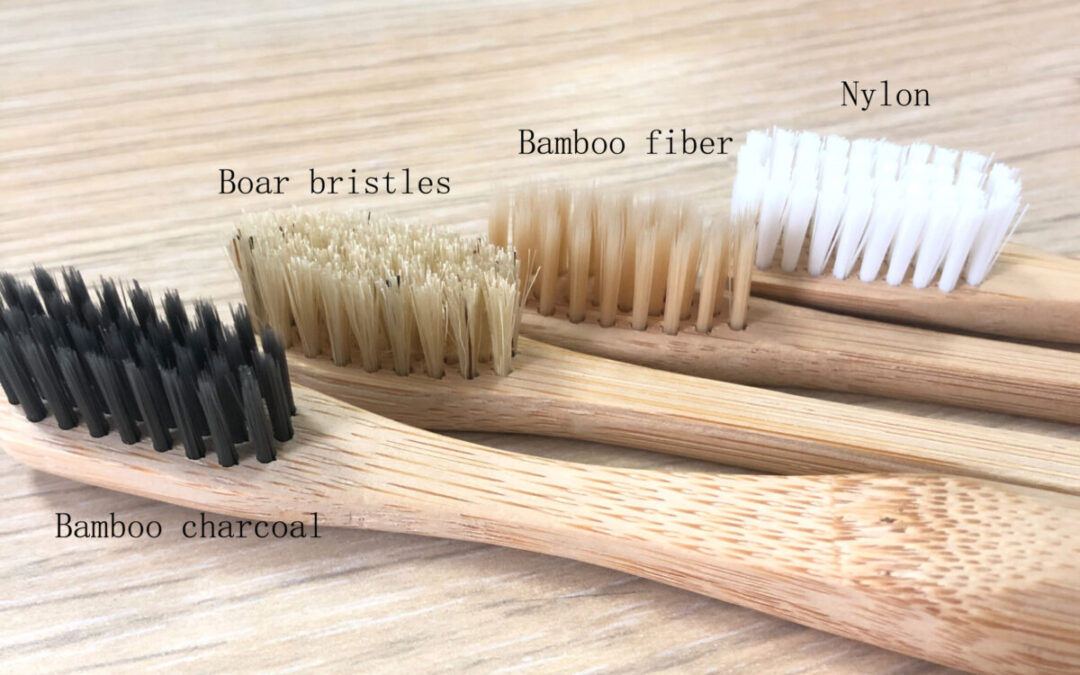Growing up, many of us are told we need to brush our teeth with hard-bristled toothbrushes. Unfortunately, most people hear this from their parents rather than a dentist.
What is the purpose of hard-bristled toothbrushes? The answer may surprise you!
Hard bristle manual toothbrushes are usually marketed as helping to remove tartar. However, no toothbrush can do either of those tasks. The only way to remove plaque after it becomes tartar is to see a dentist. Besides, tooth stains penetrate deep into the enamel; they are not visible on the surface.
Despite years of passing down this misconception, few people even question it. After all, it makes sense.
Answering the question, “Why are there so many toothbrushes with hard bristles? Depends on personal preferences.
When people use a hard-bristled brush rather than a soft one, their teeth feel cleaner. Of course, any method that encourages regular brushing is suitable. But soft-bristled brushes offer same benefits and have no disadvantages as hard bristles.
A hard-bristled toothbrush isn’t much better than one with a soft bristle. Even though they can remove more plaque, their downsides are not worth the effort.
What Do Hard Bristles Do?
A hard toothbrush bristle can scrape off some enamel on your teeth when scraping off plaque. If left unchecked, this can lead to severe damage to your teeth. In addition, hard bristles irritate your gums.
Having them can make your gums extra sensitive. It also causes them to bleed when you’re brushing and even causes them to recede. All of this can result in gum disease or losing your teeth.
How do hard-bristle and soft-bristle toothbrushes differ?
With a hard-bristle toothbrush, you can clean your teeth’ surface easily. This is because its bristles are dense.
Unfortunately, it also causes considerable damage to your teeth. Because people brush their teeth so vigorously that they wear down their enamel in the process. Additionally, vigorous brushing can scrape your gums and damage them.
When you brush your teeth with a soft-bristle toothbrush, the bristles are less densely packed. This makes them easier to bend when you brush, taking the pressure off your teeth and gums. Soft bristles are also easier to use for teeth cleaning. As they can reach areas of your teeth that hard bristles cannot.
New Soft Bristles Are Just as Good
Today, many toothbrushes with soft bristles are as good as ones with hard bristles. But, if the plaque can’t be removed with a soft-bristled brush, then it’s unlikely hard bristles will remove the plaque. You can only remove this type of plaque by coming in for a professional cleaning.
When you believe your brush isn’t removing as much plaque from your teeth as it should, it may not be your brush’s fault. Instead, you’re not brushing your teeth correctly. It’s important to angle your toothbrush towards the gum line.
Instead of brushing up and down, move the brush in circular motions. Avoid using too much pressure. Instead, make sure you spend an adequate amount of time in each area to avoid missing any plaques.
Can everyone use soft-bristle toothbrushes?
Generally, dentists recommend soft-bristled toothbrushes for adults and children, except for braces. This is because soft-bristle brushes can make your braces more susceptible to damage. Because they can get caught in the brackets in your mouth.
You should use interdental brushes while wearing braces. These are smaller than traditional toothbrushes and will clean your teeth better. To clean your teeth while wearing braces, your dentist may another toothbrush. It can be an electric toothbrush or a toothbrush with a smaller head.
How to take care of your toothbrush
Maintaining the condition of your soft-bristle toothbrush is crucial. Replace your toothbrush every three months. Or whenever the bristles start to wear out. Also, be sure to change your electric toothbrush head every three months if you use one.
Avoid covering your brush with a toothbrush cover to prevent germs from thriving. Also, try to keep your brush as far away from the toilet as possible. This is to prevent fecal matter from clinging to your brush after using the restroom.
Besides this, you should also use alcohol, mouthwash, or hydrogen peroxide.
BOTTOM LINE
Brushes with soft bristles are effective at cleaning your mouth. Therefore your general dentist will recommend using one. Hard bristled toothbrushes give an illusion of doing a better job at cleaning teeth. But the reality of that both bristles work equally good for teeth.
You can try and see the effect for yourself. It might feel weird at first, but once you start using it, you will like them better.
If you are willing to learn more, contact your dentist to discuss about why soft-bristle toothbrushes are ideal.

